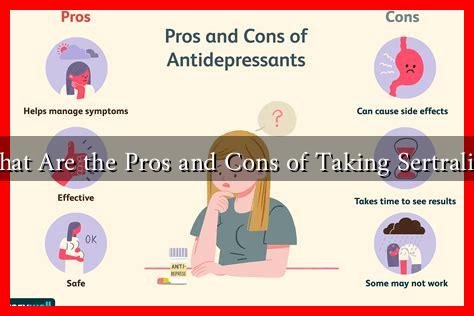-
Table of Contents
What Are the Pros and Cons of Taking Sertraline?
Sertraline, commonly known by its brand name Zoloft, is a selective serotonin reuptake inhibitor (SSRI) primarily prescribed for the treatment of depression, anxiety disorders, obsessive-compulsive disorder (OCD), and post-traumatic stress disorder (PTSD). While many patients find relief from their symptoms, it is essential to weigh the pros and cons of taking this medication. This article explores the benefits and drawbacks of sertraline, providing a comprehensive overview for those considering its use.
Understanding Sertraline
Sertraline works by increasing the levels of serotonin in the brain, a neurotransmitter that plays a crucial role in mood regulation. By preventing the reabsorption of serotonin, sertraline helps improve mood and alleviate anxiety. It is typically prescribed in tablet form and can take several weeks to show its full effects.
Pros of Taking Sertraline
Many patients report positive outcomes when taking sertraline. Here are some of the key benefits:
- Effective Treatment: Numerous studies have shown that sertraline is effective in treating major depressive disorder and anxiety disorders. According to a meta-analysis published in the Journal of Clinical Psychiatry, SSRIs like sertraline significantly reduce symptoms in a majority of patients.
- Fewer Side Effects: Compared to older antidepressants, sertraline generally has a more favorable side effect profile. Many patients tolerate it well, experiencing fewer adverse effects than with tricyclic antidepressants.
- Improved Quality of Life: For many individuals, sertraline can lead to a significant improvement in daily functioning, relationships, and overall quality of life. Patients often report feeling more engaged and less withdrawn.
- Long-Term Use: Sertraline can be used safely for extended periods, making it a viable option for chronic conditions. Many patients find that long-term treatment helps maintain their mental health.
Cons of Taking Sertraline
Despite its benefits, sertraline is not without drawbacks. Here are some potential cons to consider:
- Side Effects: While many tolerate sertraline well, some may experience side effects such as nausea, insomnia, sexual dysfunction, and weight gain. A study published in Psychological Medicine found that sexual side effects were reported by up to 30% of patients.
- Withdrawal Symptoms: Discontinuing sertraline can lead to withdrawal symptoms, including dizziness, irritability, and flu-like symptoms. It is crucial to taper off the medication under a doctor’s supervision.
- Delayed Onset: Sertraline does not provide immediate relief. Patients may need to wait several weeks to notice significant improvements, which can be frustrating for those seeking quick solutions.
- Potential for Dependency: Although sertraline is not considered addictive, some patients may develop a psychological dependency on the medication, feeling unable to cope without it.
Case Studies and Statistics
Real-world examples can provide insight into the effects of sertraline. For instance, a case study published in the American Journal of Psychiatry followed a group of patients with severe depression who were treated with sertraline. Over six months, 60% of participants reported a significant reduction in depressive symptoms, while 20% experienced mild side effects that did not require discontinuation of the medication.
Statistics from the National Institute of Mental Health indicate that approximately 40 million adults in the U.S. suffer from anxiety disorders, and SSRIs like sertraline are among the most commonly prescribed treatments. This highlights the importance of understanding both the benefits and risks associated with this medication.
Conclusion
Sertraline can be a powerful tool in managing depression and anxiety, offering many patients significant relief from their symptoms. However, it is essential to consider the potential side effects and the importance of medical supervision when starting or discontinuing the medication. As with any treatment, individual experiences may vary, and it is crucial to have open discussions with healthcare providers to determine the best course of action. Ultimately, understanding the pros and cons of sertraline can empower patients to make informed decisions about their mental health treatment.

